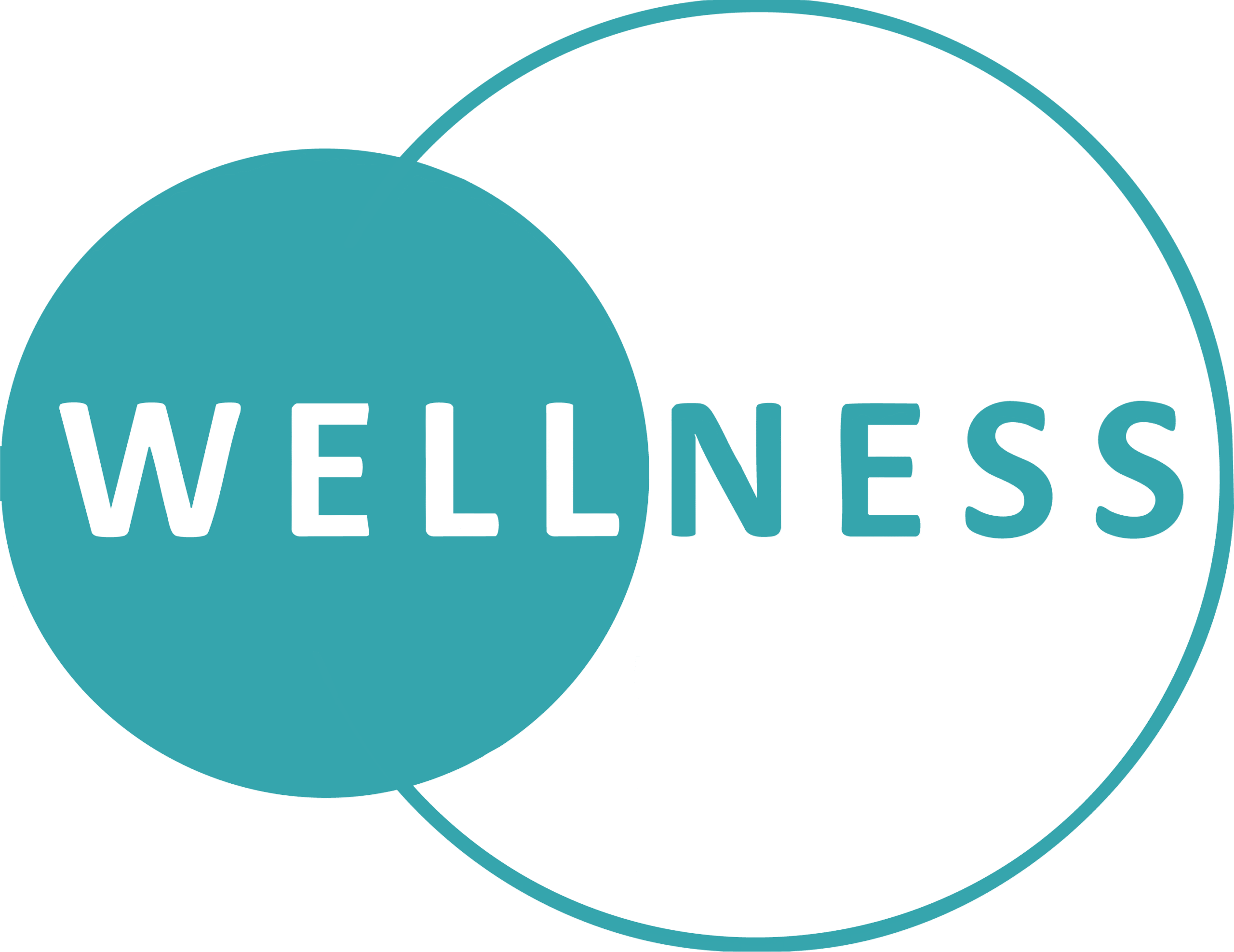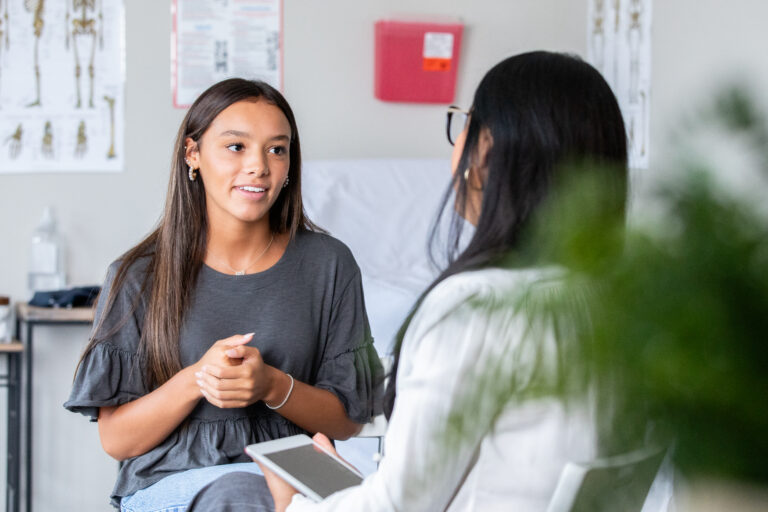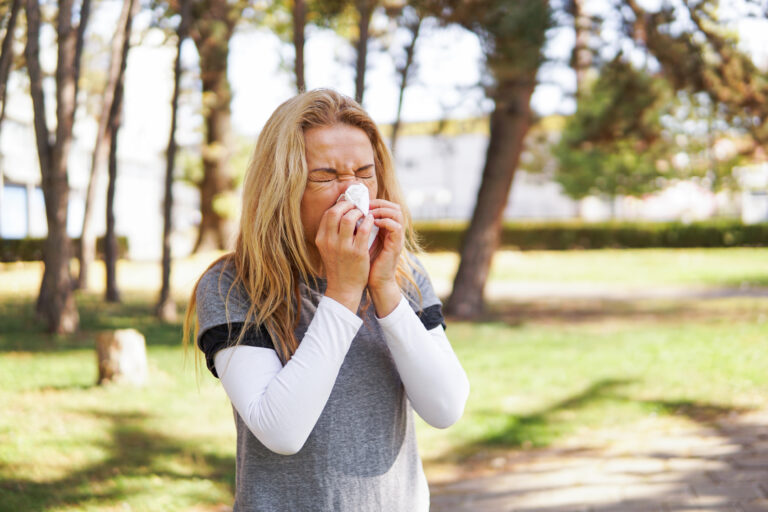Prioritising You: Navigating Menopause with Confidence
While menopause is a natural part of ageing, it often arrives with changes you may not have been expecting. The transition can bring physical changes, emotional shifts, and new health considerations, often at a time when you are juggling busy family, work, and personal commitments.
It’s easy to put everyone else first and let your own wellbeing slip down the list. But looking after yourself during the journey of menopause is one of the best ways to protect your health, now and into the future.
What is menopause?
Menopause is a natural stage of life when your periods stop permanently.1,2 Most Australian women go through it between ages 45 and 55, with the average age around 51.1-3 For some women, it can happen earlier or later, sometimes because of health conditions or treatments.3
The time leading up to menopause is called perimenopause.2 This stage usually lasts four to eight years, and your periods often become irregular before stopping altogether.2 You are considered postmenopausal once you’ve gone 12 months without a period.2 At this point, some symptoms may ease, but it’s also an important time to focus on your long-term health, especially your bones and heart.
Common symptoms
Menopause affects everyone differently. For some the changes are minor, while for others the transition can be more challenging.
Common symptoms include2,3:
- Hot flushes and night sweats
- Vaginal dryness or discomfort
- Sleeping difficulties
- Aches and pains in the body
- Sore breasts
- Changes to memory or concentration
- Mood changes, including anxiety and low mood
These symptoms are a normal part of the process, but they can still affect your daily life, relationships, and wellbeing. If you’re unsure what’s normal or need reassurance, a nurse practitioner can talk you through your symptoms and options in a convenient telehealth consultation.
Getting support early
You don’t need to face menopause alone. Talking with your GP, a nurse practitioner, or another health professional can help you understand your options and improve your quality of life. Sometimes your healthcare team may also refer you to a specialist, physiotherapist, or psychologist for more tailored support.
You should reach out to a healthcare professional if1,3:
- you think you have started to go through menopause and want advice
- you are worried about changes to your periods
- your symptoms stop you from doing things you normally do
- your symptoms affect your sleep, eating habits, or enjoyment of activities
- you experience vaginal bleeding after not having your period for a year.
Sometimes your healthcare team may recommend referral to another professional such as a specialist, physiotherapist, or psychologist to provide more tailored support.
How our nurse practitioners can help
- Listen and support: Having your symptoms heard and acknowledged can be the first step toward feeling better.
- Discuss treatment options: From lifestyle advice to discussions about treatment options, a nurse practitioner can help you tailor an approach to managing your menopause symptoms.
- Coordinate your care: Having nurse practitioners as part of your healthcare team means you can receive care directly and be referred to doctors or specialists when needed, giving you access to well-rounded care and support.
If you would like help managing menopause, you can book a 100% bulk-billed telehealth appointment with our nurse practitioner team, all from the comfort of your home.
Managing menopause
The goal of managing menopause is to ease symptoms and reduce the risk of developing osteoporosis.2 Depending on your experiences, your healthcare team can tailor recommendations to suit you which may include1,2:
- Hormone replacement therapy: may help to reduce hot flushes, night sweats, sleep problems, and vaginal symptoms. Some medications also play a role in preventing and managing osteoporosis.
- Non-hormone medications: can be useful for specific concerns such as mood changes or sleep difficulties.
- Lifestyle and behavioural changes: Staying active, maintaining a healthy diet, and finding ways to manage stress can make a big difference.
- Complementary approaches: Some people find therapies like yoga or mindfulness helpful.
Practical lifestyle changes
While lifestyle changes can’t always treat menopausal symptoms on their own, they can make them easier to manage and improve your wellbeing.4 Practical changes to consider3,4:
- Healthy weight: Hormonal changes after menopause often shift bodily fat storage towards the waist, and excess belly fat is linked to higher risk of certain health conditions. Maintaining a healthy weight can reduce symptoms and protect your long-term health.
- Exercise: Physical activity can boost quality of life during the transition to menopause. Regular exercise supports bone health, reduces the risk of osteoporosis, improves mood and sleep, and helps maintain mental sharpness.
- Emotional wellbeing: Yoga may improve sleep, while cognitive behaviour therapy (CBT) can help reduce the impact of symptoms and improve wellbeing.
- Daily comfort strategies: Dressing in layers, choosing natural fibres, using fans or water spray to cool down, keeping water at hand, and adjusting your sleep environment can all help you feel more comfortable through hot flushes and night sweats.
- Avoid your triggers: If you notice certain foods or habits worsen your symptoms, such as spicy foods, alcohol, or smoking, try to reduce or avoid them.
If you’d like support in making these changes part of your routine, a nurse practitioner can provide personalised guidance and practical strategies via telehealth.
Your long-term health after menopause
The hormonal changes of menopause can affect not only how you feel day to day, but also your long-term health.
- Bone health: After menopause, your body breaks down bone faster than it replaces it, which increases your risk of osteoporosis.1 Staying active with weight-bearing exercise, getting enough calcium and vitamin D, and making bone-friendly lifestyle choices all help protect your bones.6
- Heart health: Menopause increases your risk of getting heart disease which makes understanding your personal risk more important.1
This stage of life is a good opportunity to take stock of your overall health. If you are seeking advice about menopause, it’s also worth booking a general health check.2 This can help detect age-related conditions early and support you in staying well. Cardiovascular risk screening is especially important, and it is recommended for all adults from age 45, for people living with diabetes from age 35, and for First Nations peoples from age 30.2
Your healthcare professional may also recommend other health checks, such as a mammogram, pelvic examination, or cervical screening test.1 Together, these checks give you a clearer picture of your health and help you plan for the years ahead.
Take the Next Step
Every woman’s experience of menopause is different, but you don’t need to navigate it alone. Our nurse practitioners are here to listen, answer your questions, and guide you through this stage of life with care and support.
With a bulk-billed telehealth consultation, you can:
- Talk through your symptoms in a private, supportive environment
- Get tailored advice on lifestyle changes, treatment options, and next steps
- Access referrals to other healthcare professionals
- Stay on top of your long-term health with recommended screenings and checks
You don’t have to wait for answers or travel for care, support is available from the comfort of your own home.
Book your telehealth appointment today and take the next step towards managing menopause with confidence.
References
- Health Direct. Menopause. www.healthdirect.gov.au. Published December 2023. Accessed August 25, 2025. https://www.healthdirect.gov.au/menopause
- Therapeutic Guidelines. Menopause. Tg.org.au. Published December 2020. Accessed August 25, 2025. https://www.tg.org.au
- Jean Hailes for Women's Health. Menopause fact sheet. Jean Hailes. Published May 2023. Accessed August 25, 2025. https://www.jeanhailes.org.au/resources/menopause
- Health Direct. Managing menopausal symptoms without medication. Healthdirect.gov.au. Published May 2024. Accessed August 25, 2025. https://www.healthdirect.gov.au/managing-menopausal-symptoms-without-medication
- Jean Hailes for Women's Health. How to manage menopausal symptoms. Jean Hailes. Published April 22, 2025. Accessed August 25, 2025. https://www.jeanhailes.org.au/health-a-z/menopause/managing-your-symptoms
- Health Direct. Osteoporosis. Health Direct. Published March 2025. Accessed August 25, 2025. https://www.healthdirect.gov.au/osteoporosis
PRESCRIPTION-004373








